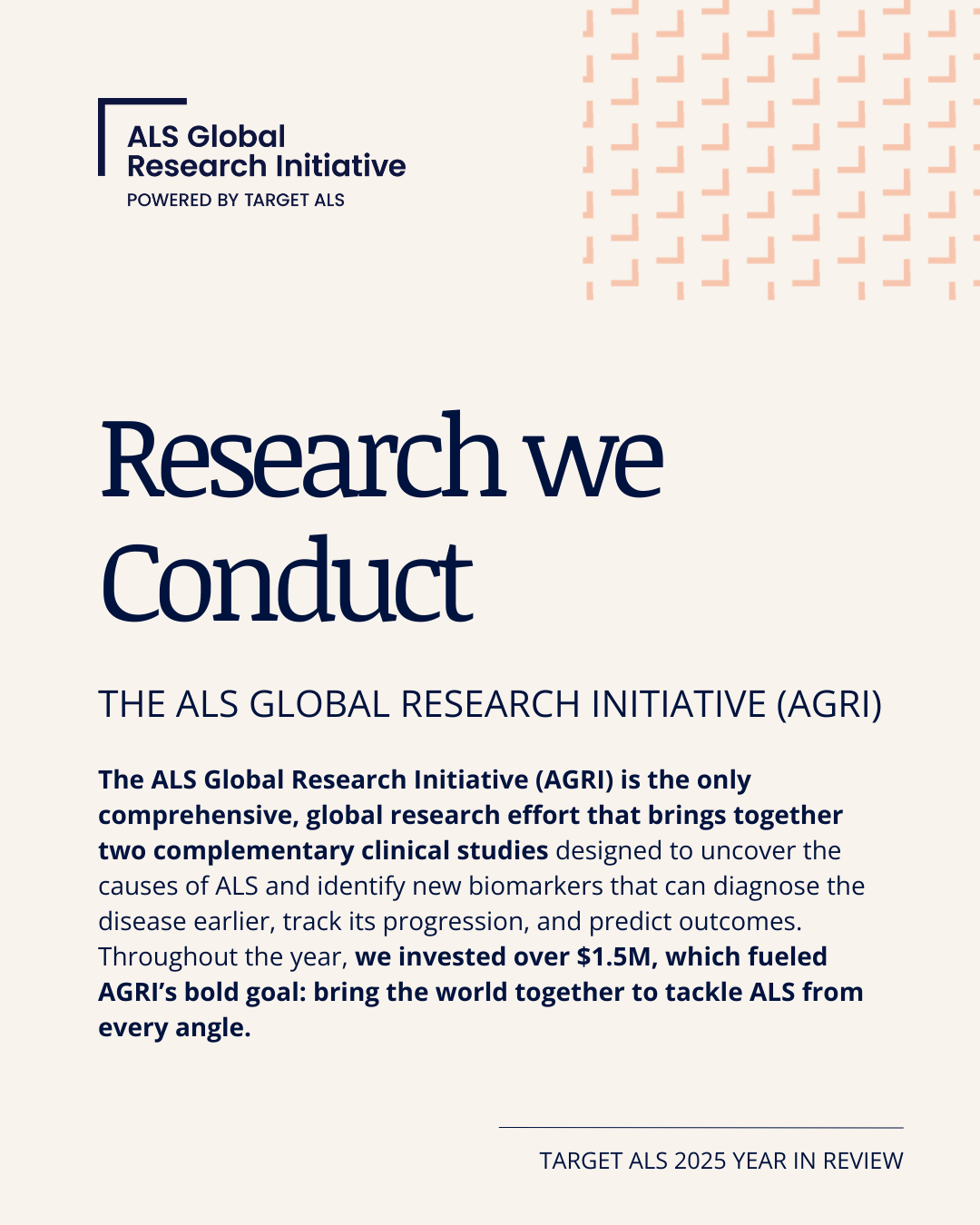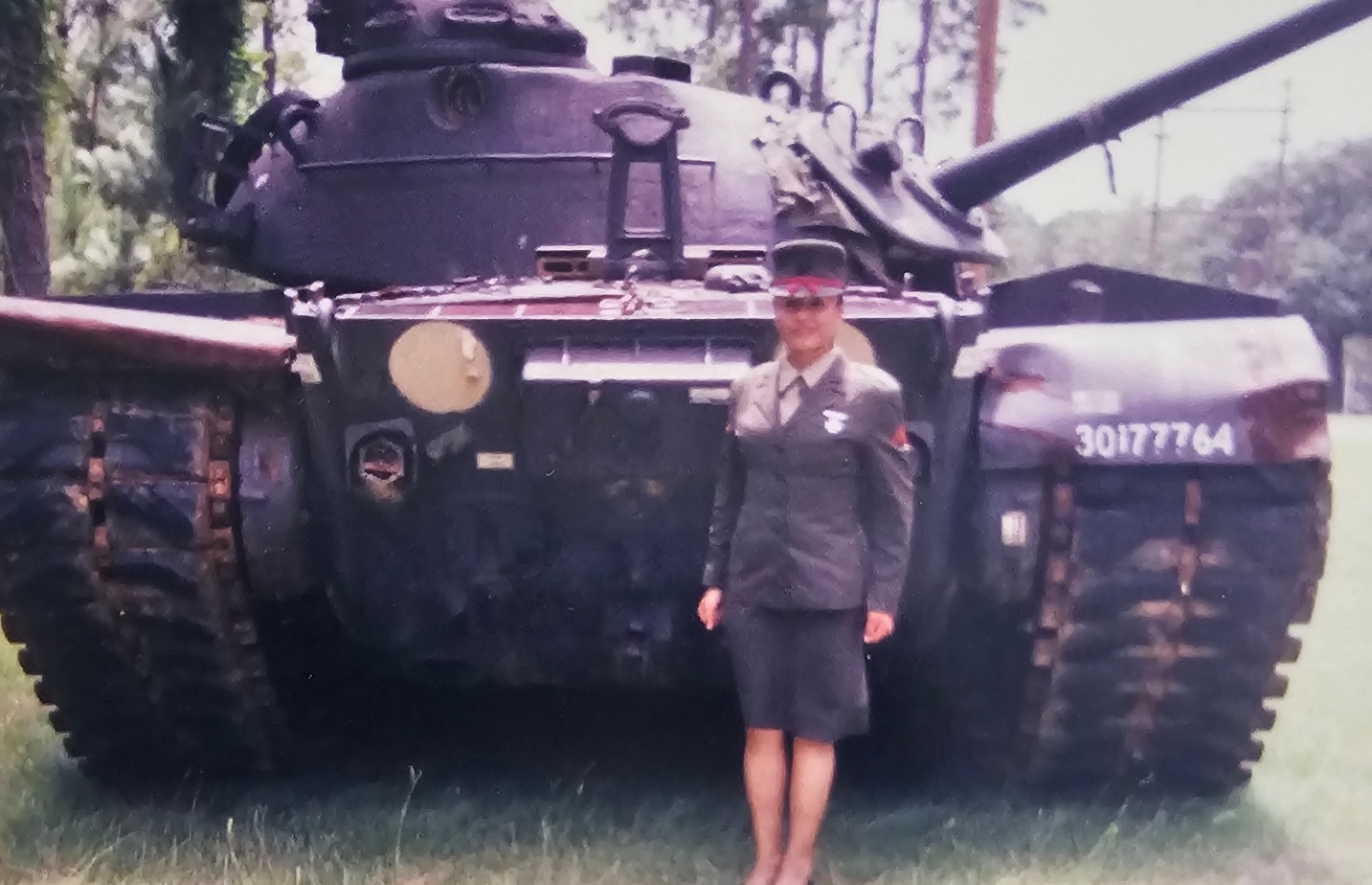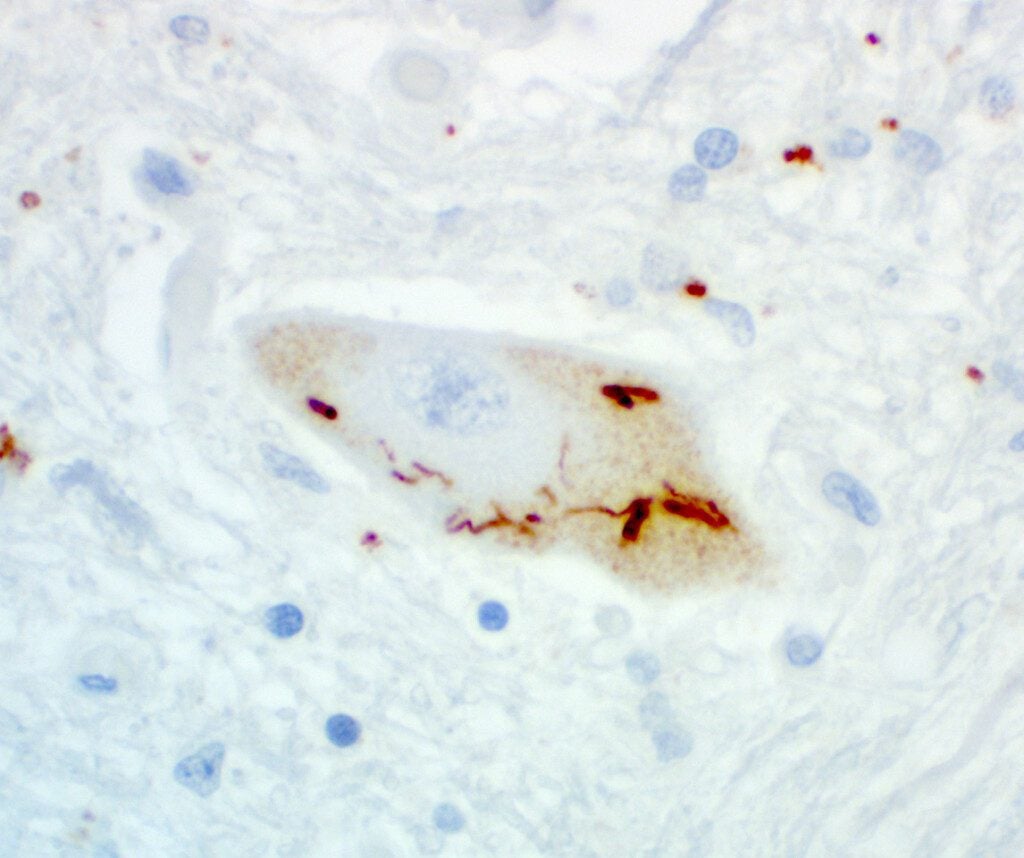The ALS Global Research Initiative
AGRI is the most comprehensive and inclusive global effort for ALS. We’re closing critical gaps in research and transforming the pursuit of treatments for everyone living with ALS.
Join a studyOur ALS Global Research Initiative (AGRI) is tackling one of the field’s most urgent challenges: the need for research that reflects the full ALS community.
By enrolling participants from diverse and underrepresented populations around the world, AGRI is helping scientists address some of the most pressing questions in ALS: what genetic and environmental factors increase risk, why the disease progresses differently in each person and how we can accelerate the discovery of new biomarkers and treatments.
Through 14 global research sites and counting, we are breaking barriers to rapidly advance ALS research and build the largest and most inclusive ALS studies to date, ensuring discoveries benefit everyone affected by the disease.
AGRI studies
Our studies are transforming the understanding of ALS and accelerating the race towards effective treatments for everyone.
A global reach
AGRI is changing how and where ALS research is conducted. With our global reach, we’re closing gaps in data and ensuring diverse participation in research.
“You are either a conduit of progress or the obstacle. I want to help.”
What sets AGRI apart?
Collaboration without borders
AGRI, for the first time, brings together the global ALS community to participate in and help address longstanding gaps in our understanding of the disease like its genetic and environmental risk factors, heterogeneity in presentation and progression as well as to galvanize biomarker discovery.
Breaking down barriers
Our studies are unlocking insights that are changing the trajectory of ALS research, accelerating progress towards effective treatments. Unlike other studies where samples can sit unused for years, we make our samples available to scientists worldwide right away so they can move their ideas forward quickly. We also want to make it easier to participate in our study by providing assistance with travel and lodging.
Commitment to diversity
Data from diverse participants is critical to discovering effective treatments for all. Historically, only ~5% of participants in ALS studies have been of non-Caucasian descent. We’re changing that.
36% of participants in our Global Natural History Study are already non-Caucasian and we continue to grow the diversity by including diverse communities worldwide. We are expanding the study to more research sites both internationally and domestically, while also bringing research directly to participants through our Community-Based Pop-Up Clinics.
Featured stories
Impact powered by AGRI
AGRI aims to dramatically change the ALS journey for those diagnosed and their families.
By speeding up the discovery and testing of new biomarkers, we want to make it easier to diagnose ALS early. This means people living with ALS get answers sooner, access care earlier, and explore more treatment options and research opportunities.
AGRI is also helping researchers better understand genetic and environmental risk factors for ALS and how the disease progresses, using real-world patient data to drive discoveries that could lead to new treatments for ALS and to run clinical trials with more precision in the future.
This information isn’t sitting on a shelf, it’s available immediately to scientists and clinicians around the world. When more people can easily access high-quality data, they can work together faster to make new discoveries.
IRB approval and Patient Consent
Every participant provides informed consent, which means they agree to share their samples and related genetic data for research. Every participating site has local or central IRB approval to conduct the study. Collecting samples under the same IRB-approved protocol helps ensure consistency, quality, and that participant rights are always protected. Samples and data are de-identified to protect patient privacy.
Innovation in action
32,000+
vials of biofluid samples collected
14
active sites
292
participants
(177 with ALS and 115 healthy controls)
Which study is best for you?
Every participant helps turn data into discovery.
Whether you’re living with ALS, a friend or family member of someone who lives with ALS, a researcher, or a healthy person who wants to help, your participation will make a difference for the future of ALS understanding and treatment.
Join the Global Natural History Study
Through the Global Natural History Study, we are gathering critical, real-world data to uncover biomarkers that will lead to earlier diagnosis and faster action.
Participate in a Community-Based Pop-Up Clinic
We’re reaching underrepresented communities across the U.S. through local partner clinics and one-day events, which allow for quick and easy biofluid sampling.
Learn about brain and spinal cord donation
With Brain and Spinal Cord Donation, we are extending possibilities by collecting critical tissue samples to discover new treatments for ALS and frontotemporal dementia, a related disease.



